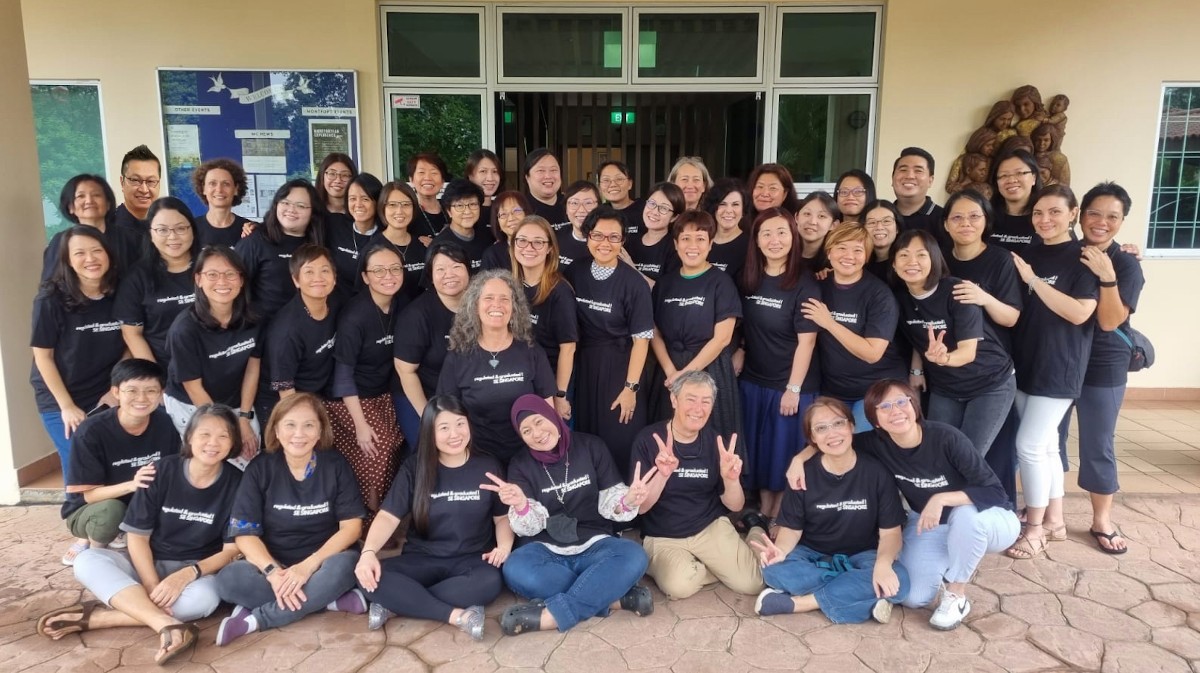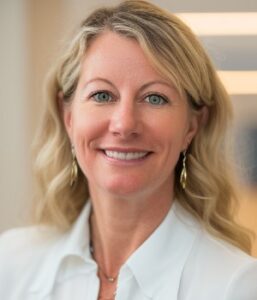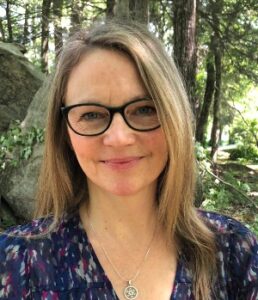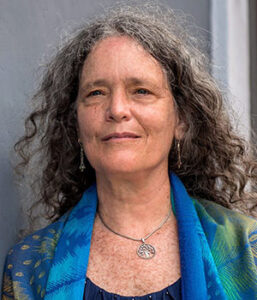3 Year Professional Training

Singapore’s very first cohort of Somatic Experiencing® (SE) Professional Training (2019 – 2022) students graduated in October 2022!
Developed by Dr. Peter A. Levine, Somatic Experiencing® (SE) is an integrative approach to trauma healing, resolution and prevention.
Underpinning SE is a psychobiological framework that taps on the innate ability of our nervous system to restore equilibrium and wholeness after a traumatic incident.
The complete training program consists of three levels. Each level is made up of two modules of six days each (36 hours each module). There will be co-training in this program.
BEGINNING LEVEL
- Understand the physiological basis of trauma.
- Learn about containment, resourcing and empowerment.
- Study tracking skills, titration and establishing continuity through the felt sense.
- Practice establishing defensive orienting responses, completion and discharge.
- Explore coupling dynamics, the elements of internal experience (SIBAM), and integrating experiential polarities, in order to restore creative self-regulation.
- Be able to identify, normalize, and stabilize traumatic reactions.
- Attain skills to avoid pitfalls of re-traumatization and false memory.
- Learn to uncouple fear from immobility; re-establish and maintain healthy boundaries.
- Investigate the transformative qualities of trauma. Integrate trauma work into ongoing therapy.
- Acquire short-term solutions to acute and chronic symptoms.
INTERMEDIATE LEVEL
Examine the different categories and causes of traumatic shock and approaches to treating each case including:
- Global High Intensity Trauma: surgery, electrocution, hallucinogens, drowning, suffocation, strangulation, fetal distress, traumatic birth, intrauterine stress, and invasive medical procedures in utero.
- Inescapable Attack: wild animals, rape, war, bombings, physical abuse, mugging, incest, molestation.
- Physical Injury: surgery, anesthesia, burns, poisoning, hospitalisations, stabbing, gunshot wounds.
- Failure of Physical Defense: falls, high impact accidents, head injury.
- Emotional Trauma: severe neglect and abandonment, severe loss, ongoing abuse.
- Natural Disasters: earthquakes, fires, tornadoes, floods, social dislocation from the natural world and community.
- Horror: seeing an accident (especially with blood, gore), watching someone else be abused, raped, killed or tortured, killing or hurting someone yourself.
- Torture and Ritual Abuse: war torture, repeated rape in war, concentration camp, and systematic abuse (sometimes with the person drugged).
ADVANCED LEVEL
- Learn about the relationship of trauma to various clinical syndromes.
- Further integrate SE theory and practice into the specialty area of the therapist.
- SE bodywork in working with the different categories of trauma.
- Application of research in the psychophysiology of trauma.
- The ‘art’ of therapy.
- Special topics including work with children and infants.
Training Calendar
SE Singapore Generation 2
Beginning I/ll
15 -20 Apr 2023
Beginning II/III
17-22 Oct 2023
Intermediate I/II
18-23 Apr 2024
Intermediate II/III
17-22 Oct 2024
Advanced I/II
14-19 Apr 2025
Advance II/III
30 Oct-4 Nov 2025
SE Singapore Generation 3
Beginning I/II
24-29 Aug 2024
Beginning II/III
15-20 Feb 2025
Intermediate I/II
27 Aug-1 Sep 2025
Intermediate II/III
27 Jan-1 Feb 2026
Advanced I/II
7-12 Nov 2026
Advance II/III
21-26 Apr 2027
Registration is OPEN
SE Singapore Gen 2
Advanced l/ll
14-19 Apr 2025
9am-5pm
Village Hotel Bugis
390 Victoria Street
(Near Bugis MRT station)
Fee: SGD3,100 (incl 2 tea breaks)
Early Bird: SGD3,000
(ends on 30 Jan 2025)
PCG Funding available
SE Singapore Gen 3
Beginning ll/lll
15-20 Feb 2025
9am-5pm
Village Hotel Bugis
390 Victoria Street
(Near Bugis MRT station)
Fee: SGD3,100 (incl 2 tea breaks)
Early Bird: SGD3,000
(ends on 1 Dec 2024)
PCG Funding available
Who will benefit
SE Training is designed to train professionals in helping clients deal with trauma and is not intended to be a personal self-help course.
For mental health and healthcare professionals, psychotherapists, expressive arts therapists, psychiatrists, doctors, social workers, psychologists, counsellors, physical/ body therapists, educators, other allied professionals and those working with traumatised victims at crisis relief etc.
Course Structure
Training is delivered through lectures, demonstrations, guided practice sessions, audio visual case studies, and suggested readings.
The entire 3-year part-time training program consists of 3 levels i.e. Beginning, Intermediate and Advanced.
Each level covers 2 modules. Each module provides 36 hours of training.
The Trainer is supported by a team of assistants, who are qualified SE Practitioners to support the students during the training and group practice. On the average, the assistant to student ratio is around 1:6.
Becoming an SE Practitioner (SEP™) also entails receiving a total of 12 personal SE sessions and 18 group or individual case consultation over the 3 years to deepen your experiential knowledge of SE.
FAQ
What is the prerequisite?
Applicant for the training is preferably a member of a professional and regulatory body with a code of ethics, and has an active practice. Exceptions are made for students of a recognized therapeutic training, or in internship programme with supervision.
Please note that all applications will be reviewed. Applicant may be contacted if more information is required to assess eligibility for the training.
What does the course fee cover?
The course fee is charged per module. It excludes personal therapy sessions and case consultations sessions, which are additional requirements to qualify for the SEP certification.
Can I apply for Professional Capability Grant (PCG) funding?
PCG funding is for eligible staff/volunteers from NCSS member Voluntary Welfare Organizations (VWOs) and MSF-funded VWOs. Once confirmed acceptance into the course, the respective organisation may apply for PCG pre-approved through the NCSS claim portal and send us the letter of approval from NCSS. We will follow-up with the invoice for payment of course fees.
Are there any additional requirements for certification?
Personal Sessions: 12 hours of personal sessions during the 3-year training.
Case Consultations: 18 hours of case consultation, to include Individual and Group consultations during the 3-year training.
Case consultations must be received from an approved consultation provider.
Is the program held onsite or online or hybrid?
As far as possible, the training is to be held fully onsite. The in-person format has two x 6-day modules per level, spaced about six months apart.
What if I have to miss a day’s lesson?
Students in a 6-day training can miss 1 day but need to make up by watching recorded video of the training.
Is it compulsory to attend the SE Introduction course before I go for the Beginning I/II?
In Singapore, it is highly recommended if students do not have any prior training in Somatic Experiencing.
May I attend only one module?
Yes, but will require to complete all levels and additional requirements i.e. case consultation and personal sessions to qualify for SE Practitioner status.
Is there a written or practical test?
There are checklists to gauge a student’s learning in the training manual to be completed at the different stages of training. No written or practical test.
There are triad sessions where students practice skills taught in the class.
What happens if I miss a module?
Can make up by attending SE training overseas, offered in 40 countries.
May I attend a few modules overseas?
Yes. Please inform the organiser if you intend to transfer.
How do I pay?
Payments may be made using one of the following methods:
– Cheque
– Electronic Bank Transfer
All payments must be made in Singapore dollars.
Trainers
Somatic Experiencing Professional Training
Abi Blakeslee
 Dr Abi Blakeslee is the founder of Implicit Psychotherapy. She is senior faculty at the Somatic Experiencing International and legacy faculty for Dr Peter Levine’s Ergos Institute for Somatic Education. Additionally, she is the Director of Training and Education for the Neuro-consulting Group.
Dr Abi Blakeslee is the founder of Implicit Psychotherapy. She is senior faculty at the Somatic Experiencing International and legacy faculty for Dr Peter Levine’s Ergos Institute for Somatic Education. Additionally, she is the Director of Training and Education for the Neuro-consulting Group.
Dr Blakeslee holds a PhD in Clinical and Somatic Psychology and an MA in Counseling and Depth Psychology. Her dissertation generated original research on the role of implicit memory in healing trauma.
Dr Blakeslee integrates the study of implicit memory and psychophysiology in clinical research, secondary trauma interventions, and the psychobiological principles of attachment and shock trauma. She treats individuals, couples, children, and families in her clinical practice. Dr Blakeslee teaches and consults worldwide. She lives in Bozeman, Montana, with her husband and their three growing children.
Glyndie Nickerson
 Glyndie Nickerson is a faculty member at Somatic Experiencing International, and teaches the Beginning and Intermediate years of the SE training, as well as supporting SE students and graduates through group and individual consultations. Glyndie also teaches workshops on SE and spiritual practice, co-regulation, and grief.
Glyndie Nickerson is a faculty member at Somatic Experiencing International, and teaches the Beginning and Intermediate years of the SE training, as well as supporting SE students and graduates through group and individual consultations. Glyndie also teaches workshops on SE and spiritual practice, co-regulation, and grief.
Trusting and learning from nature and the moment by moment unfolding of the body’s wisdom has been a lifelong fascination and practice, and led to an early engagement with somatic and healing approaches starting in 1993. Glyndie’s SE teaching is informed by current neuropsychological research, the biopsychosocial model, object relations, attachment theory, family systems, Jungian, and relational psychoanalysis perspectives, as well as the creative and spiritual blossoming that curiously often accompanies post-traumatic growth. Her meditation practice anchors her work.
Lael Katherine Keen

Lael, a Certified Advanced Teacher of Somatic Experiencing®, began her studies with Dr Peter Levine in 1993 and was immediately captivated by the power and reach of his work.
Together with the Brazilian Rolfing Association and Pedro Prado, she helped to bring the first Somatic Experiencing training to Brazil in 1998. She and her husband Russell Jones are some of the co-founders of the Brazilian Trauma Association and they teach Somatic Experiencing® together and separately throughout the world on four continents as well as in their home, in the rainforest on the island of Santa Catarina in the south of Brazil.
